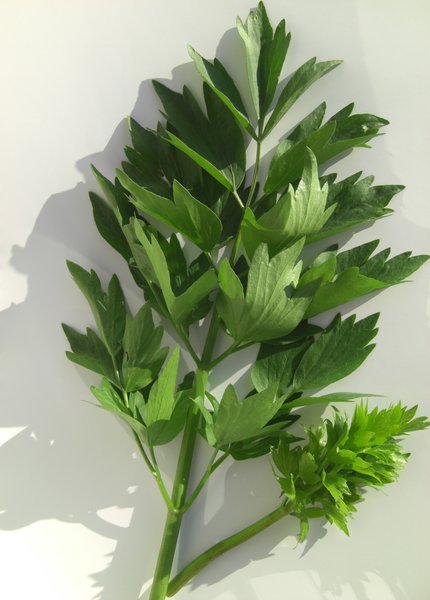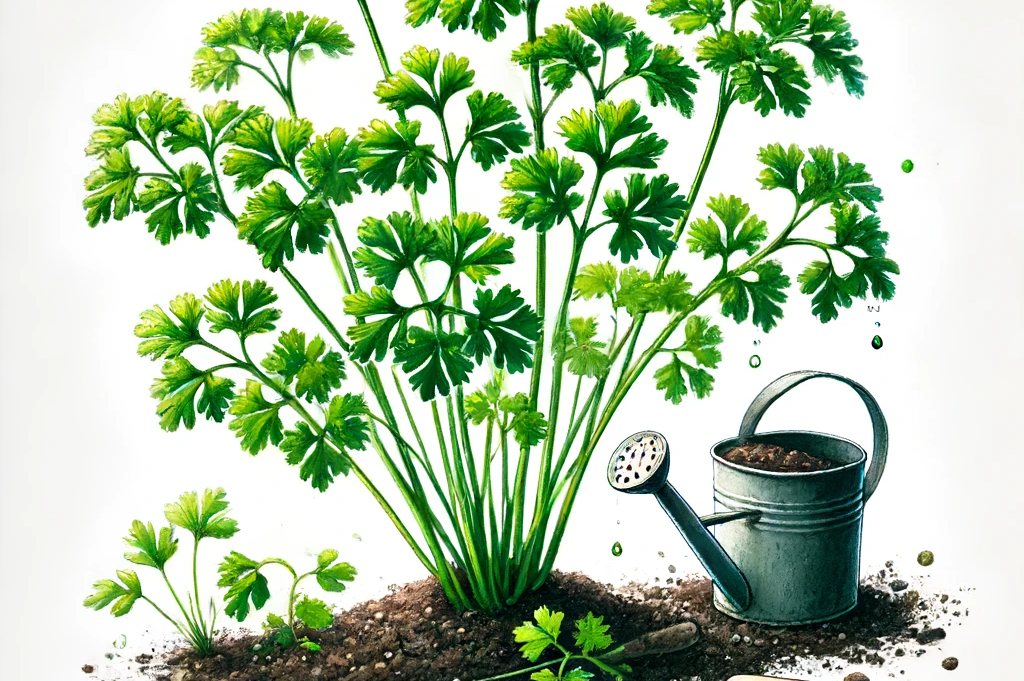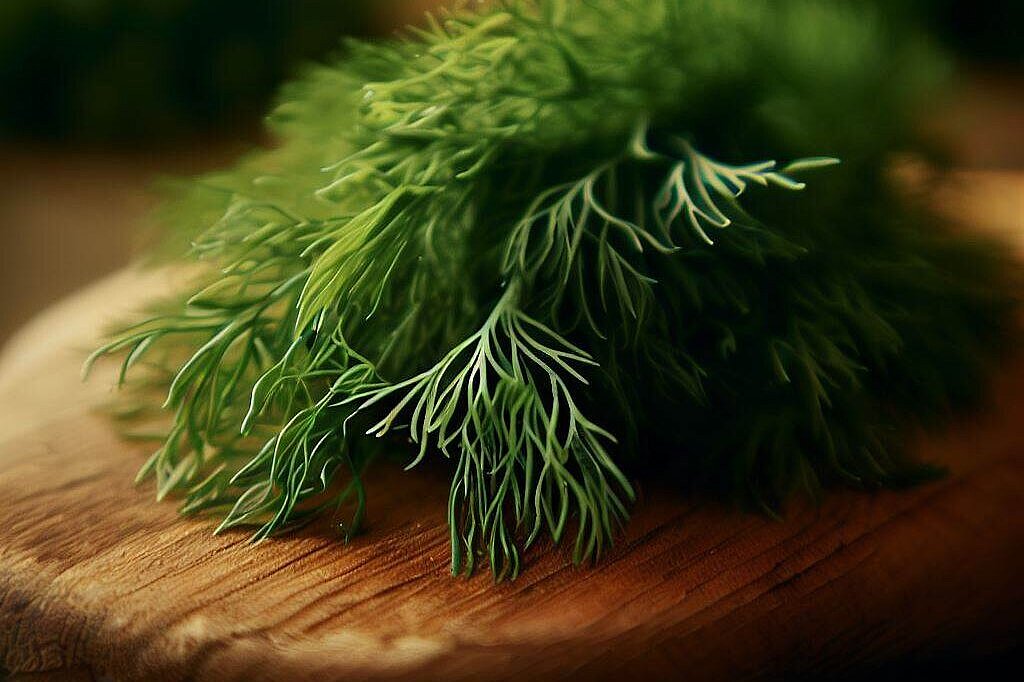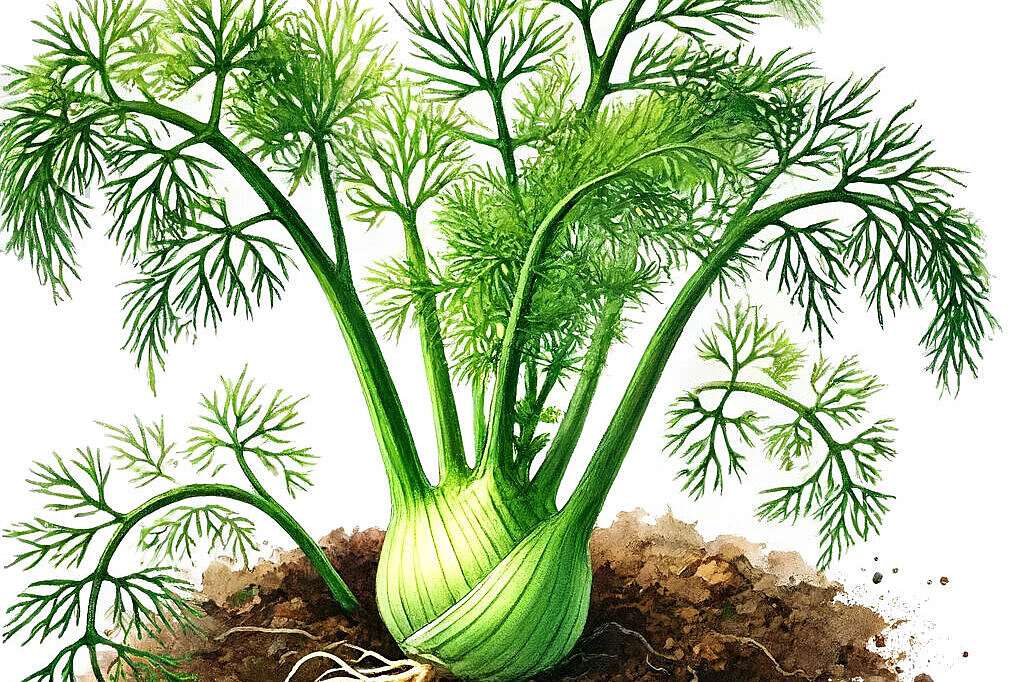Lovage

Benefits of lovage for dogs
Lovage has some health benefits for dogs that you may want to take advantage of. For example:
- Lovage has a diuretic effect and can help with urinary tract infections or bladder stones.
- Lovage aids digestion and can relieve bloating or constipation.
- Lovage has an antibacterial and anti-inflammatory effect and can help with skin problems or wounds.
- Lovage contains many vitamins and minerals that strengthen the immune system and make the coat shiny.
How can you use lovage for your dog?
If you want to give your dog lovage, there are various options. You can, for example:
- Mix fresh or dried lovage leaves into the food. The amount should be adjusted depending on the size and weight of your dog. A rule of thumb is about one teaspoon per 10 kilograms of body weight.
- Prepare a lovage tea by pouring hot water over a few leaves and leaving to infuse. You can then leave the tea to cool and offer it to your dog as drinking water or pour it over their food.
- Make a lovage tincture by covering a few leaves with alcohol in a jar and leaving to stand for two weeks. The tincture can then be diluted with water and dripped into your dog's mouth or applied to the skin.
Disadvantages of lovage for dogs
Lovage is a natural herb, but that doesn't mean it's always safe. There are some disadvantages of lovage for dogs that you should be aware of. For example:
- Lovage can cause allergic reactions in some dogs, such as itching, rashes or difficulty breathing. If you notice that your dog is sensitive to lovage, you should stop using it immediately and seek veterinary advice.
- If the dosage is too high, lovage can lead to symptoms of poisoning, such as vomiting, diarrhea or cramps. You should therefore always measure out the right amount for your dog and not overdo it.
- Lovage can influence the effect of medications, especially those that affect blood clotting or blood pressure. If your dog is taking medication, you should speak to your vet before giving him lovage.
Lovage is an herb that can have both benefits and disadvantages for dogs. If you want to do something good for your dog, you can mix some lovage into his food from time to time or offer him a tea or tincture. But always make sure that your dog does not have any allergic or toxic reactions and that you stick to the correct dosage.
If you notice any signs of hypersensitivity or poisoning in your dog, you should see your vet immediately. We are not a substitute for a vet, but we try to be as accurate as possible. Every dog reacts differently and we recommend you get a second opinion or consult your vet if in doubt.
Stay healthy and take good care of your four-legged friend!😊
Similar to Lovage
Parsley is a plant from the umbellifer family, which also includes carrots, celery and fennel. It has green, curly or smooth leaves with an aromatic scent. Parsley originates from the Mediterranean...
Dill is a spice plant from the Apiaceae family. It is known for its fine, fern-like leaves and fine seeds, which are often used in cooking. Dill originates from southwest Asia, but is now cultivated...
Chervil is an annual plant that can grow up to 60 cm high. It has feathery leaves and white flowers that form small seeds. Chervil originates from south-eastern Europe and western Asia, but is now...
Fennel consists of three parts: the bulbous fennel, the fennel green and the fennel seeds. The bulbous fennel is the thickest part of the plant, which looks like a bulb and has a sweet taste. The...



